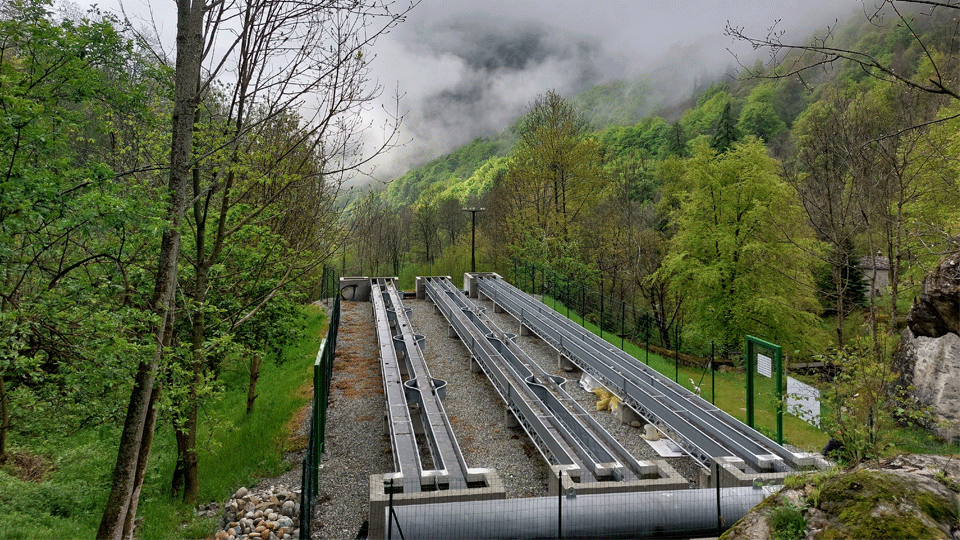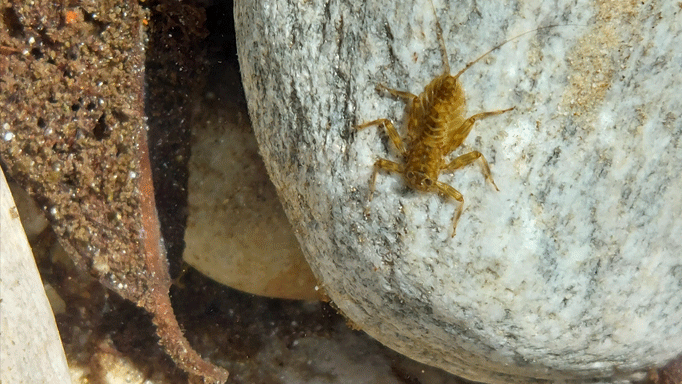This FLF renewal, which will commence from November 2024, represents an additional 3 years of research bringing the total fellowship to 7 years. The FLF scheme aims to support the next generation of research leaders and provides long-term support to tackle ambitious and multidisciplinary programmes of research.
The renewal of Dr Mathers’ fellowship will support her to continue research on freshwater ecosystems, one of the most endangered habitats globally. One of the primary causes of reduced riverine ecosystem health is the loss of habitat linked to excessive fine sediment deposition. Although a natural part of river ecosystems, changes to land use over time, such as intensive farming and hydrological extremes caused by climate change, have significantly increased the quantity of fine sediment delivered to river channels. This causes the habitat to become unsuitable for many flora and fauna, affecting all components of the food chain.
Dr Mathers’ programme of research aims to understand which environmental factors influence the severity of fine sediment pressures for ecological communities, to provide a framework which determines where and when rivers are most at threat from fine sediment pressures, within the UK and across the world.
During the first 3 years of the FLF, significant advances within the field of river science have been made by her team. A paired invertebrate-sediment dataset has been compiled that includes data from New Zealand, Australia, Brazil, UK and Italy, which has led to evidence of the geographically variable responses of communities to fine sediment pressures. These results highlight that we should not always strive for generalisable management practices, because invertebrate responses are dependent on regional landscape filters, including river type and historical land management.
The team has also considered the importance of season and patch-scale responses to fine sediment. This research has highlighted the need to discriminate between fine sediment fractions of sand and silt and to consider when river monitoring takes places as the season of sampling influences the results. Both these factors have important ramifications for how we monitor fine sediment pressures in our rivers.
The team has enjoyed several fieldwork campaigns including running comparable experiments in two sets of outdoor flumes, one in Dorset, UK and one in Ostana, in the scenic Italian Alps to understand the role of landscape filtering and source populations for mitigating fine sediment impacts on fauna. A dedicated UK wide fieldwork campaign across England and Wales was also undertaken to address methodological challenges, in addition to identifying key abiotic controls.
Dr Mathers said: “Being awarded the FLF has completely transformed my career and acted as a springboard to both solidify my standing as an emerging international research leader and significantly enhance my global reach and network. The ability to dedicate my time has enabled me to undertake completely new, high-quality research directed at substantive and persistent knowledge gaps that have constrained progress in understanding fine sediment pollution.”
She added “I am excited to continue to develop our knowledge base on this important and often overlooked pressure to our ecosystems during the renewal phase. I hope that by gaining this invaluable level of insight into the threat of fine sediment, real progress can be made in supporting our ecosystems. It is the entire combination of research that I propose to undertake that holds the key to unlocking the full mechanistic understanding of fine sediment effects in riverine ecosystems.
“I would like to extend a huge thank you to all my core team, collaborators, project partners and mentors who I have worked with over the years who have been instrumental in the programme of work delivered to date and I look forward to more fruitful research over the next 3 years.”
Michael Hoyler, Head of Geography and Environment commented: “I am absolutely delighted that Kate has secured an extension to her Future Leaders Fellowship. This highly competitive scheme aims to develop the next generation of world-class research leaders and it is wonderful to see Kate’s innovative research flourish here at Loughborough.”

